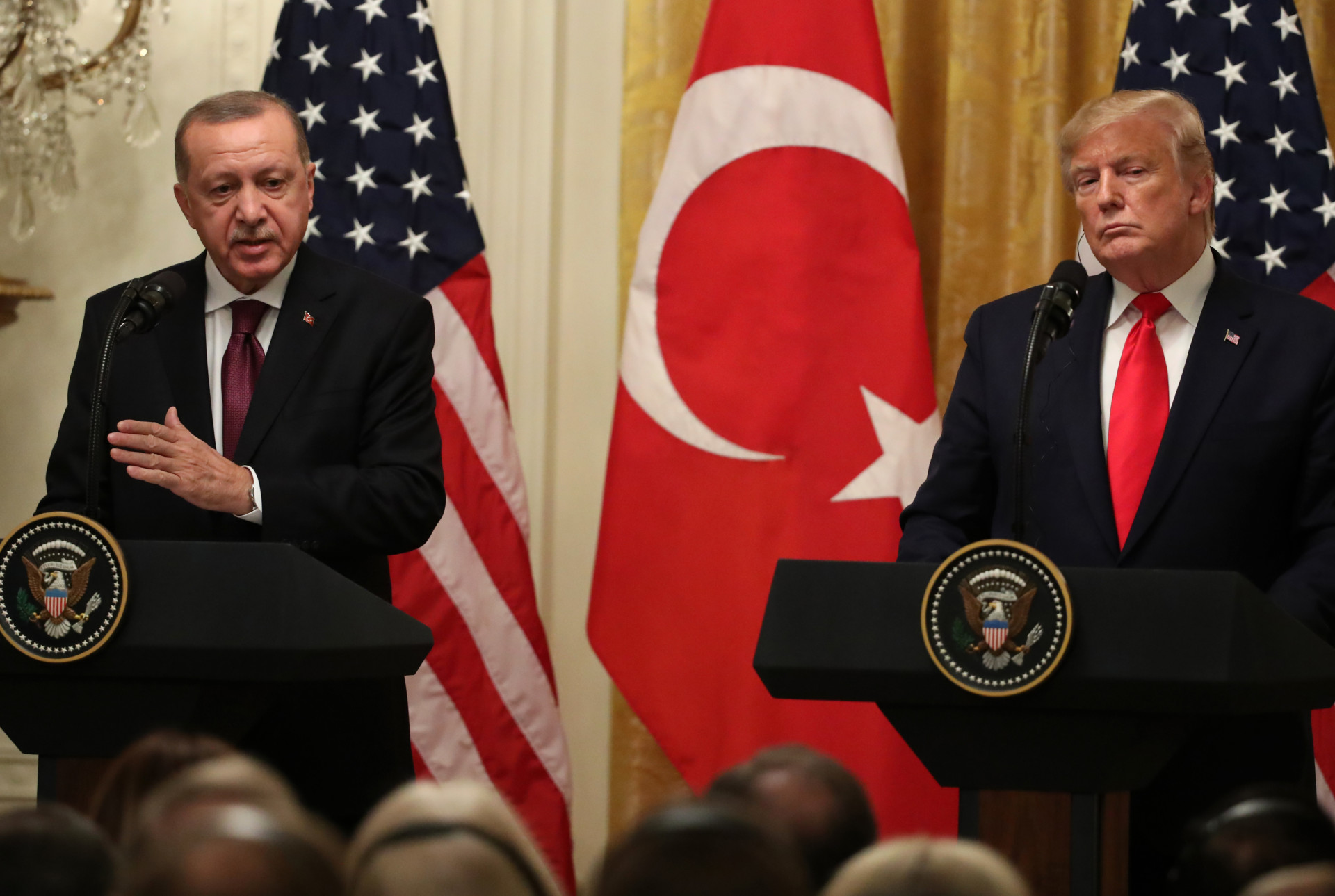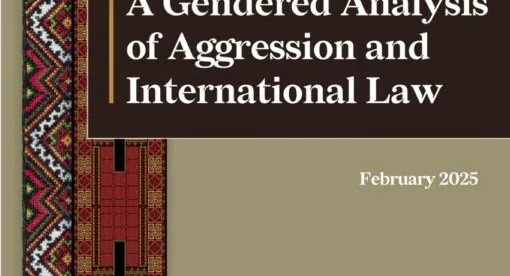The Trump administration’s decision to withdraw forces from parts of Kurdish-controlled northeastern Syria to make way for a Turkish invasion of the area has created an uproar. Several factors inform the flurry of criticism of Washington’s move, including partisan attitudes toward the president, a fragmentary view of the complex Syrian chessboard, a misunderstanding of the role of U.S. and Kurdish forces in Syria, and a failure to take into account broader U.S. imperatives. As the storm settles, clear thinking is needed about what led to this moment and what needs to be done to mitigate the costs and prevent a security vacuum. The Trump administration must make sure that Turkey reaches an understanding with the Syrian Kurds and that the gains made against ISIS are not lost.
Following a phone conversation between U.S. President Donald J. Trump and his Turkish counterpart, Recep Tayyip Erdogan, the White House press secretary issued an announcement Sunday night that Turkey would soon execute its long-planned military operation in northeastern Syria and that U.S. forces will be moving out of the area. The statement further read that the Turks will be responsible for all ISIS fighters captured over the past couple of years. Monday morning, Trump tweeted that the United States will not be involved in open-ended conflicts and will only fight where it is to the American advantage and where victory is achievable. “Turkey, Europe, Syria, Iran, Iraq, Russia and the Kurds will now have to figure the situation out,” he tweeted.
Criticism and Constraints
The move has elicited massive criticism, and for a variety of reasons. First, critics are describing the decision as a betrayal of the Syrian Kurds. Second, the move will facilitate an ISIS resurgence. Third, it will allow Iran to further entrench itself in the Levant. All of these arguments are true, but only partially, and the potential consequences of Washington’s decision are not inevitable.
The first casualty in partisan critique is objective and honest analysis of the situation, especially when former government officials opposed to the White House come out in opposition to a particular decision. In the case of the Trump administration, this dynamic gets compounded exponentially – in large part because of reputational issues, track record, and inability to coherently articulate U.S. strategy and policy choices. In this melee, what gets lost is that there is very little difference in policy from one administration to another, and most differences are in how policy is put into action.
All too often we forget that the constraints that the United States faces on any given foreign policy issue do not change from one administration to another. This is why the Obama administration was not interested in getting involved in Syria, either. Syria is a shattered country and thus terribly difficult to deal with. Working with one stakeholder inevitably leads to problems with another. Yet it does not necessarily have to be a zero-sum game.
Washington’s Calculations
The U.S. has long wanted Turkey to take the lead in managing the ISIS threat and the broader Syrian conflict. The Obama administration tried to do this, but there were disagreements that continued through to the Trump White House because for the Turks fighting ISIS has been secondary to countering the Kurds. Now that the United States – through a tactical alliance with the Syrian Kurds – has weakened ISIS, the U.S. needed to repair its strategic relationship with the Turks. Washington had to find a way to achieve its original objective regarding Turkey, which I had argued for in this past issue of the Navigator from a little over a year ago and the price for that was to acknowledge Turkish imperatives vis-a-vis Syria.
Remember, after the 2003 U.S. military intervention in Iraq, the Turks worked out an arrangement with the Iraqi Kurds, who they had deeply opposed. Likewise, they will eventually accept some limited form of autonomy for the Syrian Kurds, but not until Ankara is comfortable that the Kurdish Democratic Union Party and its military wing, the People’s Protection Units (known as the PYD and YPG, respectively) are not a threat to Turkey. The idea that the agreement with Turkey is sending the wrong message to our allies who fought ISIS is actually not much of an argument because these allies would fight ISIS anyway. In fact, by putting the responsibility on the regional actors, Washington is trying to rid them of the idea that the U.S. will always do the heavy lifting, militarily and financially, in a conflict.
Of course, there is a significant risk that Turkish-Kurdish conflict will facilitate the resurgence of ISIS. But it does not have to. Washington has enough influence with both sides to work out an arrangement between Ankara and the Syrian Kurds. It is noteworthy that President Trump has warned Turkey from going too far in its planned military intervention and the Syrian Kurds have long relied on Washington to manage the Turkish threat.
The Nature of the U.S.-Kurdish Relationship
In the absence of a deal with the Turks, the Kurds were the natural proxy for the United States to fight ISIS – largely because of geography. But the Kurds were never a long-term counter to ISIS, because the areas previously held by the transnational jihadists were Sunni Arab majority. Placing those areas under Kurdish domination would re-create the very circumstances that ISIS exploited to seize that territory. Although not Arab, Turkey is still Sunni with a significant degree of influence among Syrian Sunni Arabs who have no other patron capable of protecting their interests against an increasingly Iranian/Shiite-influenced Syrian regime.
In purely objective geopolitical terms, and with all its ills, Turkey is the only state actor in the region with the capability to intervene in Syria. It is also a NATO ally, which Washington cannot afford to lose to Moscow. Turkey has already moved away from the West on so many different levels and will continue drifting away unless we engage with it. At this point, U.S. and Turkish interests appear to be converging in that Ankara needs and wants to play a major role in Syria and the region, and the United States needs Turkey to take the lead in doing so.
The Syrian Kurds have represented the core of the U.S.-Turkish disagreement, which had to be resolved. The Kurds themselves have known all along that the Americans did not see them as a substitute for Turkey. They have known that theirs is a tactical alignment with Washington against ISIS, and that the U.S. had other more strategic issues to address that require working with Turkey. For instance, Iran has been the biggest beneficiary of the defeat of ISIS.
The United States has been focusing heavily on countering Tehran’s expansionist ambitions. In many ways Iran represents a bigger threat than ISIS. Turkey is a natural rival of Iran and the only regional player capable of blocking the Islamic republic but only if Turkey can assume a major role in Syria. Washington’s decision this week was the first step toward that objective.
The United States needed to bring Turkey into Syria as it moves from the immediate goal of defeating ISIS to more complicated issues of stabilization, dealing with the Assad regime, and countering Iran and Russia. All such policy decisions are fraught with risks. For now, the Trump administration must ensure against a conflict between Turkish and Syrian Kurdish forces. Achieving an understanding between Ankara and the Kurdish-led forces in northeastern Syria will go a long way toward keeping ISIS at bay and toward addressing the broader issues related to Syria and the region.
Dr. Kamran Bokhari is Director of Analytical Development at the Newlines Institute. Dr. Bokhari is also a national security and foreign policy specialist at the University of Ottawa’s Professional Development Institute. Bokhari has served as the coordinator for Central Asia Studies at the State Department’s Foreign Service Institute (FSI). Follow him on Twitter at @KamranBokhari.






